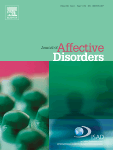J Affect Disord:2型糖尿病常加重抑郁患者负担
2013-03-19 刘沛 医学论坛网
一项最新研究表明,2型糖尿病造成的负担以及对糖尿病的治疗本身可引发患者出现抑郁症状。研究结果提示在抑郁症患者中应重视开展糖尿病相关干预措施。研究于2013年2月27日在线发表于《情感障碍杂志》。 近年来抑郁症发病率逐年升高,合并抑郁症的糖尿病患者通常预后较差。临床上关于糖尿病引起的应激以及糖尿病治疗对抑郁症的影响却常被忽视。为此研究者进行系统性临床随访,应用多种方法评估2型糖尿病患者的抑
一项最新研究表明,2型糖尿病造成的负担以及对糖尿病的治疗本身可引发患者出现抑郁症状。研究结果提示在抑郁症患者中应重视开展糖尿病相关干预措施。研究于2013年2月27日在线发表于《情感障碍杂志》。
近年来抑郁症发病率逐年升高,合并抑郁症的糖尿病患者通常预后较差。临床上关于糖尿病引起的应激以及糖尿病治疗对抑郁症的影响却常被忽视。为此研究者进行系统性临床随访,应用多种方法评估2型糖尿病患者的抑郁症状。他们在对70名抑郁症患者的访谈中使用Montgomery-Asberg抑郁评估量表(MADRS),根据受试者2型糖尿病及治疗的反应进行分类,并使用问卷评估糖尿病相关抑郁症状。
结果表明,受试者(平均年龄56±7岁,其中67%为女性,64%为黑人,21%为拉丁裔)多为轻度抑郁(MADRS得分10±9分)。半数有抑郁症状的受试者主动报告其合并糖尿病;经直接询问,61%的受试者表示抑郁症状在一定程度上由糖尿病引起。定性因素包括:糖尿病与抑郁症状重叠、糖尿病治疗负担、糖尿病对心理的影响以及抑郁和糖尿病的相互影响。抑郁症状更重的患者提及在访谈中更多提及糖尿病(r=0.38,P=0.001),患者将糖化血红蛋白(HbA1c)水平升高作为糖尿病引发抑郁症状的相关因素(r=0.32,P=0.007)。接受胰岛素治疗的患者比仅服用口服降糖药治疗的患者更多提及糖尿病(P=0.005)对抑郁的影响。

Background
Depression has increased prevalence and consistently predicts poor health outcomes among patients with diabetes. The impact of stressors related to diabetes and its treatment on depression assessment is infrequently considered.
Methods
We used mixed methods to evaluate depressive symptoms in adults with type 2 diabetes. We categorized responses related to diabetes and its treatment during interviews (n=70) using the Montgomery–Åsberg Depression Rating Scale (MADRS) and administered questionnaires to measure diabetes-related distress and depressive symptoms.
Results
Participants (M age=56, SD=7; 67% female; 64% Black; 21% Latino) had mild depression on average (MADRS M=10, SD=9). Half of those with symptoms spontaneously mentioned diabetes context; 61% said diabetes contributed to their symptoms when questioned directly. Qualitative themes included: overlapping symptoms of diabetes and depression; burden of diabetes treatment; emotional impact of diabetes; and the bidirectional influence of depression and diabetes. Diabetes was mentioned more often at higher levels of depression severity (r=.38, p=.001). Higher HbA1c was associated with mentioning diabetes as a context for depressive symptoms (r=.32, p=.007). Insulin-users mentioned diabetes more often than those on oral medications only (p=.005).
Limitations
MADRS is not a traditional qualitative interview so themes may not provide an exhaustive view of the role of diabetes context in depression assessment.
Conclusions and clinical implications
The burden of type 2 diabetes and its treatment often provide an explanatory context for depressive symptoms assessed by structured clinical interviews, the gold standard of depression assessment. Diabetes context may influence accuracy of assessment and should inform intervention planning for those needing treatment.
本网站所有内容来源注明为“梅斯医学”或“MedSci原创”的文字、图片和音视频资料,版权均属于梅斯医学所有。非经授权,任何媒体、网站或个人不得转载,授权转载时须注明来源为“梅斯医学”。其它来源的文章系转载文章,或“梅斯号”自媒体发布的文章,仅系出于传递更多信息之目的,本站仅负责审核内容合规,其内容不代表本站立场,本站不负责内容的准确性和版权。如果存在侵权、或不希望被转载的媒体或个人可与我们联系,我们将立即进行删除处理。
在此留言








#Dis#
55
#Disord#
77
#Affect#
54